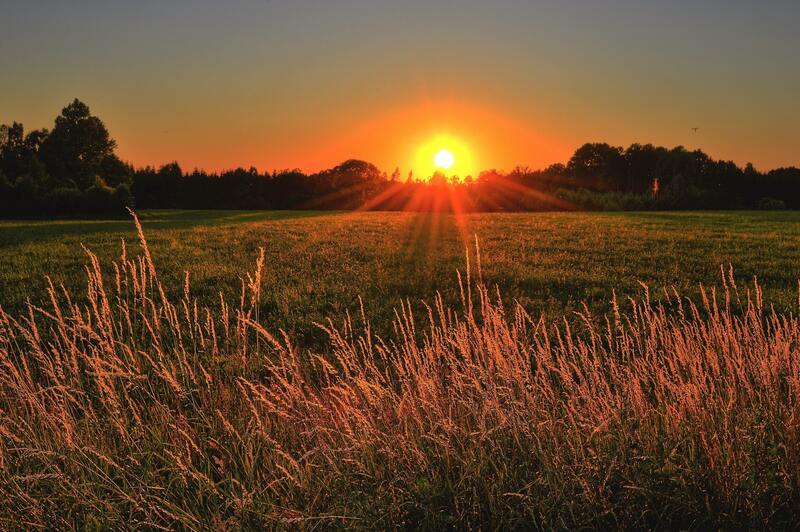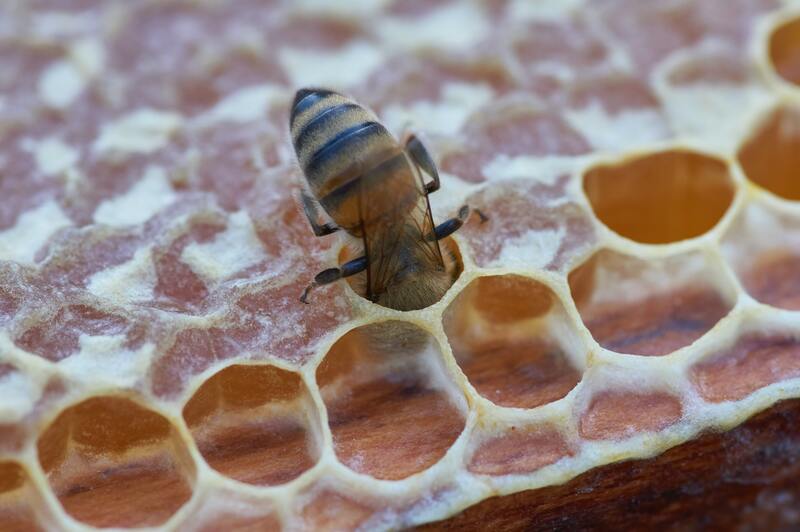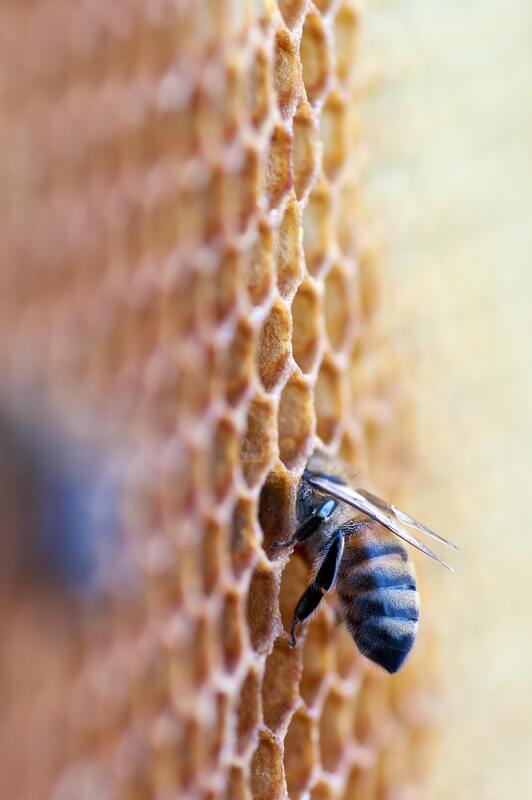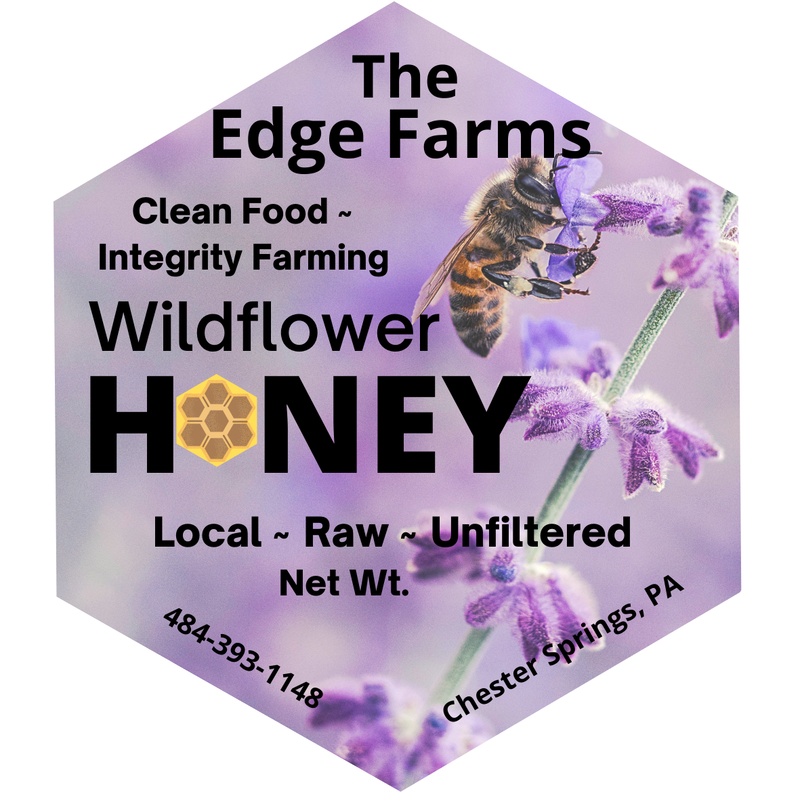Hive to table! This honey provides all the health benefits and allergy protections you'd want from a locally sourced product, wrapped in a beautiful sweet package.
Our honey is hand bottled, labeled, and delivered with pride. We use glass, wide-mouthed containers to package our honey because the texture of our raw product can naturally become granulated (develop small crystals) over time. The wide mouth allows you easily scoop out the honey even in its granulated state.
Raw & Unheated: it is never heated at all, retaining it's healthful properties.
Unfiltered: your honey stays just the way it was in the hive, full of pollen, aroma, flavors, and the tiniest bits of wax and propolis.
Small Producer: our wildflower honey comes from our several bee-boxes on the farm properties in Chester Springs, and Glenmoore, PA.
Local: produced fewer than 30 miles outside of Philadelphia. This is especially important to allergy sufferers.
The bees collect nectar through the warm parts of the year. They forage from the fragrant trees, bushes, flowers, and herbs near their hives. This honey was collected from the spring through fall plants most common in Pennsylvania wild areas, like Clover, Milk Thistle, Porcelain Berry, Tulip Poplar, and Aster.
On average, bees must visit around two million flowers and fly over 55,000 miles total, to produce just one pound of honey.
Our honey is hand bottled, labeled, and delivered with pride. We use glass, wide-mouthed containers to package our honey because the texture of our raw product can naturally become granulated (develop small crystals) over time. The wide mouth allows you easily scoop out the honey even in its granulated state.
Raw & Unheated: it is never heated at all, retaining it's healthful properties.
Unfiltered: your honey stays just the way it was in the hive, full of pollen, aroma, flavors, and the tiniest bits of wax and propolis.
Small Producer: our wildflower honey comes from our several bee-boxes on the farm properties in Chester Springs, and Glenmoore, PA.
Local: produced fewer than 30 miles outside of Philadelphia. This is especially important to allergy sufferers.
The bees collect nectar through the warm parts of the year. They forage from the fragrant trees, bushes, flowers, and herbs near their hives. This honey was collected from the spring through fall plants most common in Pennsylvania wild areas, like Clover, Milk Thistle, Porcelain Berry, Tulip Poplar, and Aster.
On average, bees must visit around two million flowers and fly over 55,000 miles total, to produce just one pound of honey.



